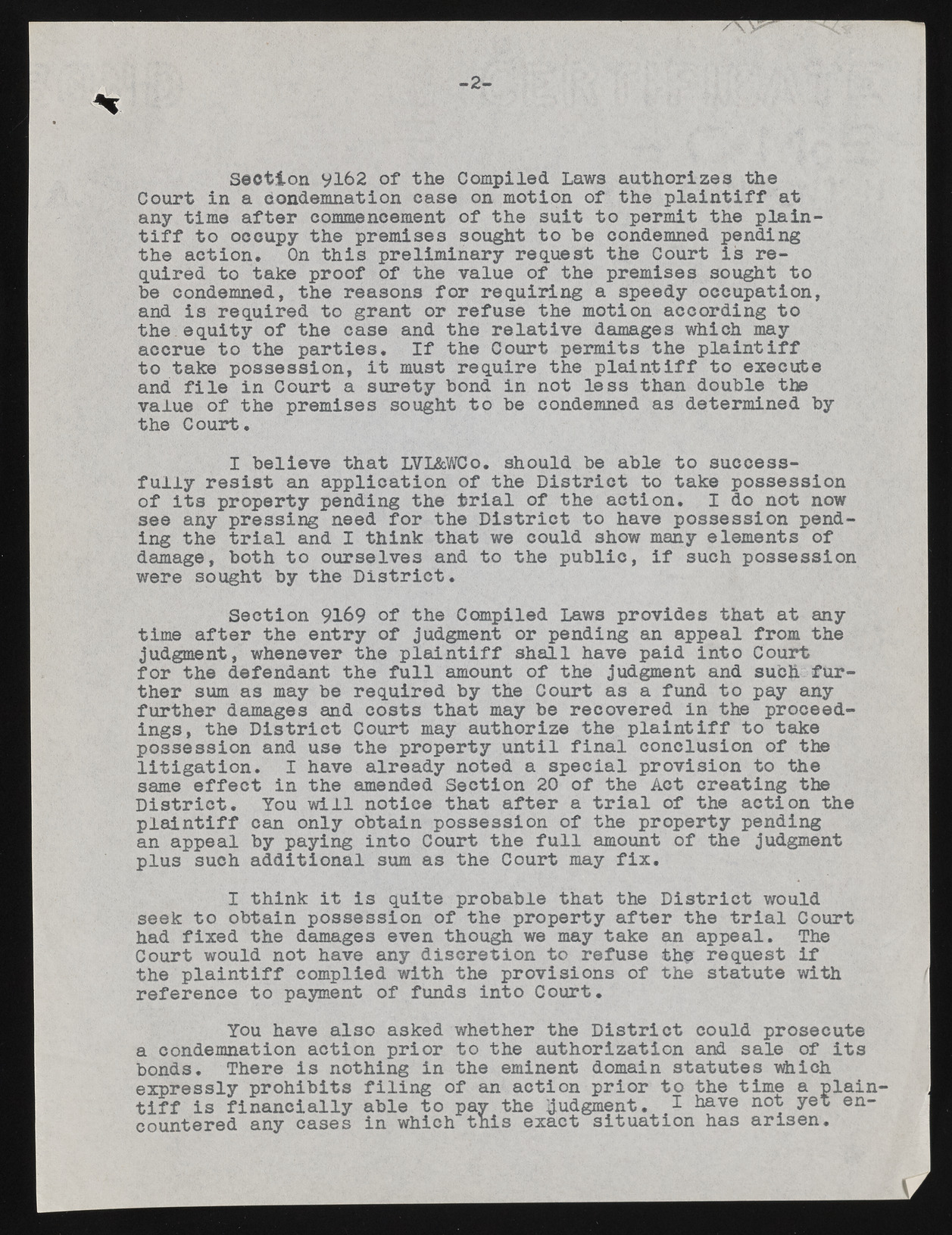Copyright & Fair-use Agreement
UNLV Special Collections provides copies of materials to facilitate private study, scholarship, or research. Material not in the public domain may be used according to fair use of copyrighted materials as defined by copyright law. Please cite us.
Please note that UNLV may not own the copyright to these materials and cannot provide permission to publish or distribute materials when UNLV is not the copyright holder. The user is solely responsible for determining the copyright status of materials and obtaining permission to use material from the copyright holder and for determining whether any permissions relating to any other rights are necessary for the intended use, and for obtaining all required permissions beyond that allowed by fair use.
Read more about our reproduction and use policy.
I agree.Information
Digital ID
Permalink
Details
More Info
Rights
Digital Provenance
Publisher
Transcription
Section yi62 of the Compiled Laws authorizes the Court in a condemnation case on motion of the p la in t iff at any time after commencement o f the suit to permit the plaint i f f to occupy the premises sought to he condemned pending the action* On th is preliminary request the Court is required to take proof of the value of the premises sought to be condemned, the reasons fo r requiring a speedy occupation, and is required to grant or refuse the motion according to the equity o f the case and the rela tive damages which may accrue to the p arties. I f the Court permits the p la in t iff to take possession, i t must require the p la in t iff to execute and f i l e in Court a surety bond in not less than double the value of the premises sought to be condemned as determined by the Court. I believe that LVL&WCo. should be able to successfu lly re s is t an application o f the D istrict to take possession o f it s property pending the t r ia l of the action . I do not now see any pressing need fo r the D istrict to have possession pending the t r ia l and I think that we could show many elements of damage, both to ourselves and to the pu blic, i f such possession were sought by the D is tr ic t. Section 9169 of the Compiled Laws provides that at any time a fter the entry o f judgment or pending an appeal from the judgment, whenever the p la in t iff shall have paid into Court fo r the defendant the f u ll amount o f the judgment and such fu rther sum as may be required by the Court as a fund to pay any further damages and costs that may be recovered in the proceedings, the D istrict Court may authorize the p la in t iff to take possession and use the property u n til fin a l conclusion o f the lit ig a t io n . I have already noted a special provision to the same e ffe c t in the amended Section 20 o f the Act creating the D is trict. You w ill notice that after a t r ia l of the action the p la in t iff can only obtain possession of the property pending an appeal by paying into Court the f u ll amount of the judgment plus such additional sum as the Court may f ix . I think i t is quite probable that the D istrict would seek to obtain possession o f the property a fter the t r ia l Court had fixed the damages even though we may take an appeal. The Court would not have any d iscretion to refuse th£ request i f the p la in t iff complied with the provisions of the statute with reference to payment of funds into Court. You have also asked whether the D istrict could prosecute a condemnation action prior to the authorization and sale of it s bonds. There is nothing in the eminent domain statutes which expressly prohibits filin g of an action p rior to the time a plaint i f f is fin a n cia lly able to pay the judgment. 1 have not yet encountered any cases in which th is exact situation has arisen.

